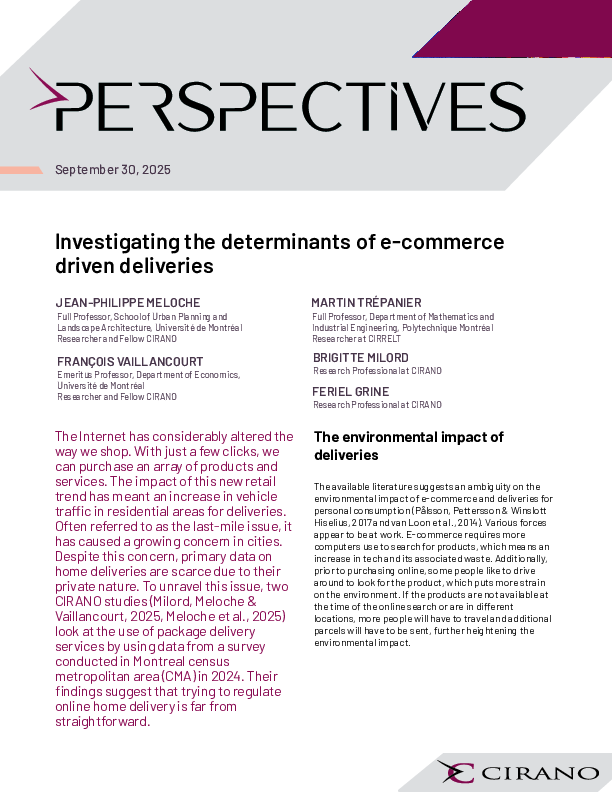Combler l’écart de niveau de vie entre le Québec et ses principaux partenaires
Beyond the differences with our partners, the primary motivation for Quebec to do better seems to be to finance the increase in public services over the coming years. The fact remains that per capita GDP growth must accelerate if we want to keep pace with spending on a number of government missions, such as health and education, as well as the maintenance of existing infrastructures. The first two recommendations concern the tax system. Quebec taxes a lot. It has made choices that have led to a heavy tax burden. The author doesn't question this level. But given this choice, Quebec must be even more vigilant than its partners to avoid distortions caused by tax systems that hamper economic growth. The two recommendations, a shift towards consumption taxes and a rigorous review of tax expenditures, are in symbiosis with the recommendations we made as part of the Commission d'examen de la fiscalité québécoise in 2015. The third recommendation isn't to succumb to pressure from interest groups to emulate the rest of Canada in terms of immigration. Beyond the linguistic and cultural issues, which the author considers important, the evidence shows that there is a real disconnect between immigration and standard of living. Ultimately, the author believes that the government must, as a matter of priority, re-evaluate what it's already doing before proposing new economic measures or policies. Even if the temptation, at the political level at least, is to show that we're taking action by introducing new initiatives, the solutions outlined in this memoir are more about doing better with what we're already doing.




